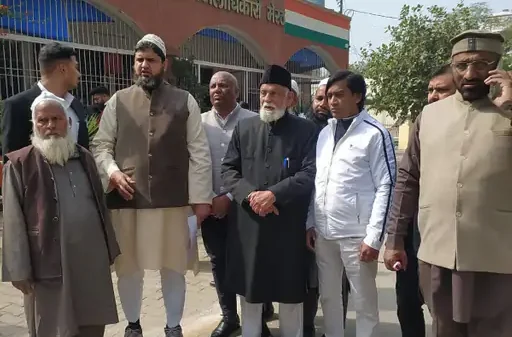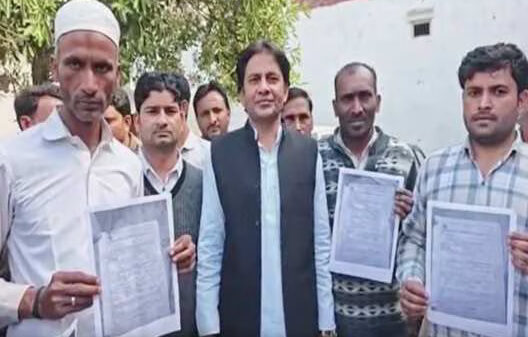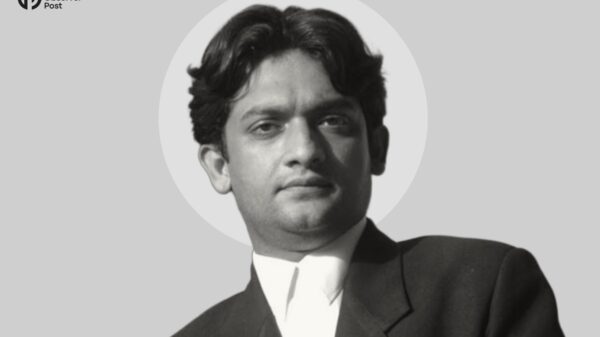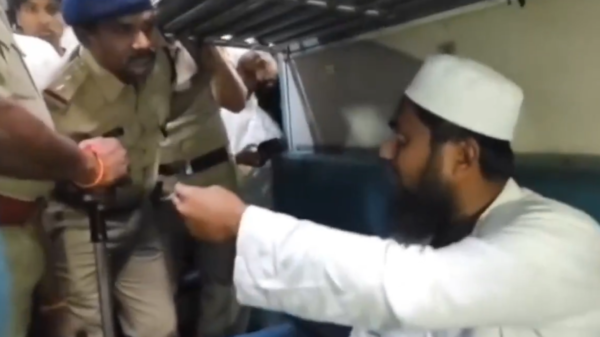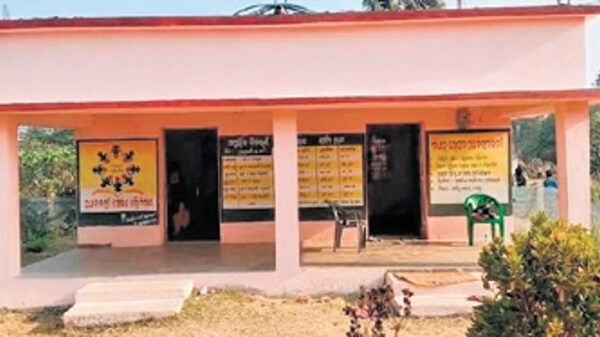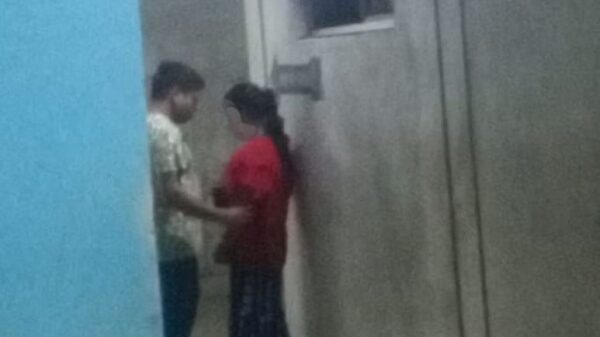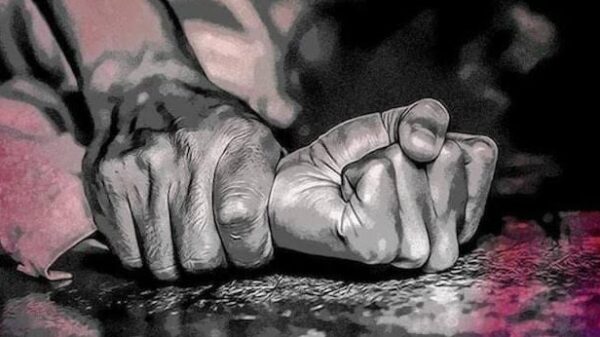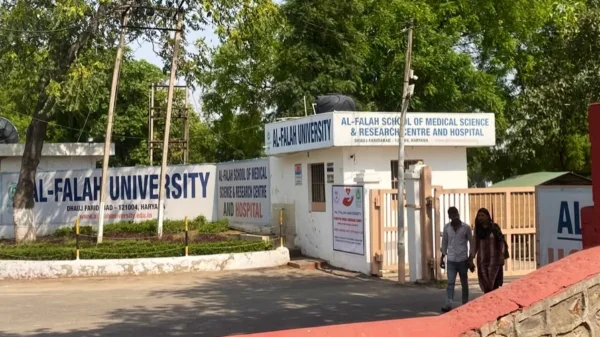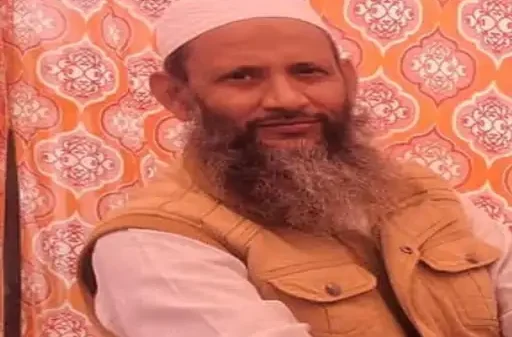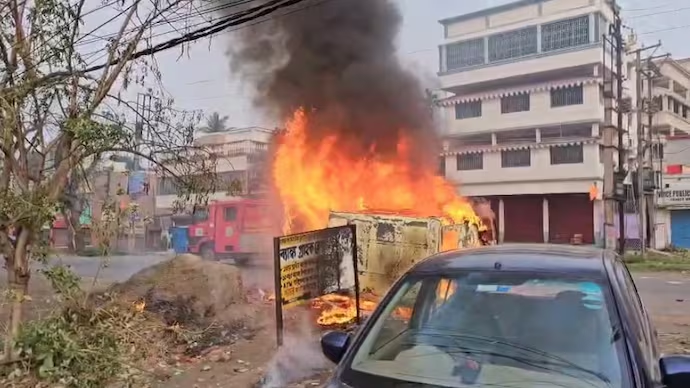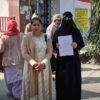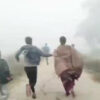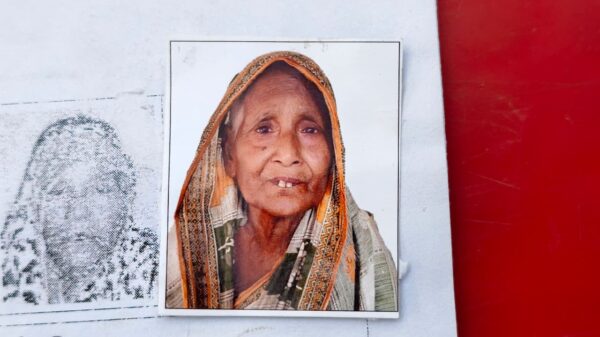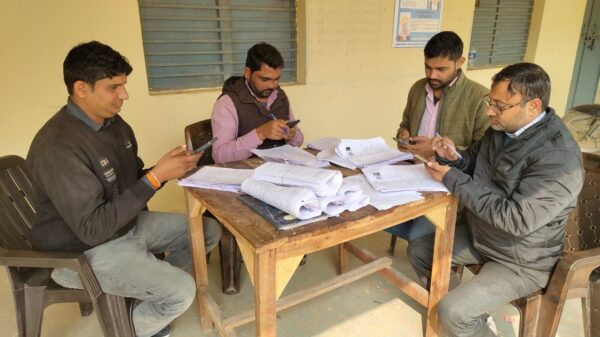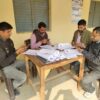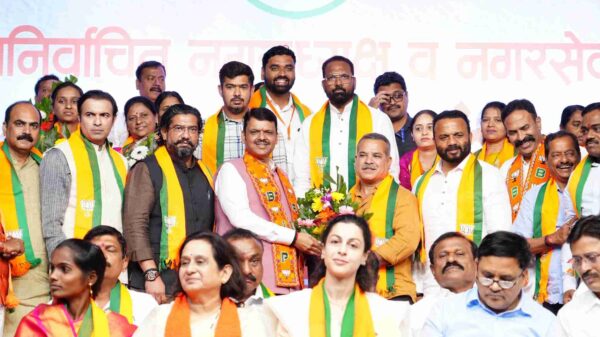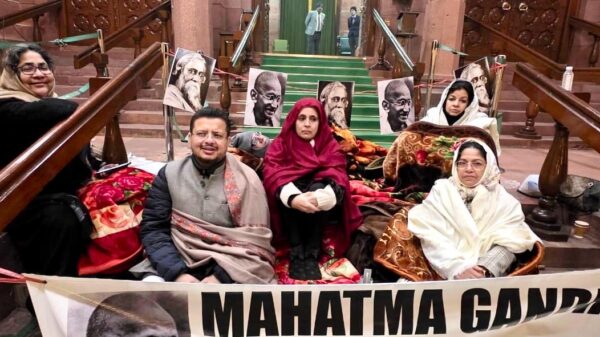On Friday afternoon in Dhulian Ganj, as the call to prayer ended, the streets swelled with men in skullcaps. Some held placards, while others walked silently. Without banners or speeches, a few hundred locals quietly marched in protest against the Waqf (Amendment) Act, according to Mohammad Sohel, president of the Trinamool Chhatra Parishad (TMCP) from Shamsherganj constituency.
By evening, however, the scene turned violent.
The tension escalated quickly in the Ghospada locality of Dhulian, where, according to Sohel, Hindu groups allegedly initiated stone-pelting. Sohel, who was present at the site to organise his student protest, said violence soon spiraled in adjoining areas of Suti, Samserganj, Jangipur, and later spread to Farakka and Sagardighi.
Mohammad Sohel, leader of Trinamool Chhatra Parishad (TMCP) had initially planned a student-led protest on April 11 to highlight the long-pending recruitment of over 26,000 teachers in West Bengal. “But the growing anger over the Waqf law overshadowed everything,” he said.
He told the protest taken out against Waqf Act had no official permission and emerged only through community discussions and WhatsApp forwards. “It wasn’t a massive rally—people came on their own to express concern. It was peaceful,” he told The Observer Post.
By late afternoon on Friday, April 11, clashes erupted in multiple areas, told Sohail. Vehicles—including police vans—were torched, and a shopping mall in Ghospada was set ablaze. Few protesters had gathered at NH-34 —Murshidabad’s arterial highway to block the route. They also burnt tyres and occupied railway tracks between Dhulianganga and Nimtita stations.
Clashes spread to Farakka, Sagardighi, and Jangipur area by late April 12 evening. The homes of TMC MLA Manirul Islam and MP Khalilur Rehman were also vandalised. On Saturday, central forces including the BSF and RAF were deployed, and curfews were imposed alongside an internet shutdown.
According to police sources, more than 110 people were arrested next day on April 13—around 70 from Suti and 41 from Samserganj. “The situation is now under control. Traffic has resumed on NH-34”, according to a senior police official.
“No temple was vandalised,” clarified Sohel. “Yet, false narratives were actively circulated by BJP members. A statue was removed from a temple in Ratanpur, Shamsherganj, but that incident occurred days before the protest.
The BJP is deliberately spreading misinformation to malign the state government—portraying it as weak and incapable of maintaining law and order, while covertly fuelling the unrest.
Police opened fire in Jangipura, Dhulian and Suti to disperse crowds. Ijaz Momin, a 21-year-old resident of Kamath, was killed in the firing. He succumbed to bullet injuries at Murshidabad Medical College. At least three others—Golam Muddin Sheikh, Hasan Sheikh, and an unidentified man—were injured and hospitalised in Jangipur.
“In Shamsherganj’s Jafrabad locality, three members of a Hindu family died under unclear circumstances on Friday evening. While police hinted at links to the protests, some locals said the deaths—those of Hargobindo Das (72) and his son Chandan Das (40)—were caused by physical assault resulting due to a family feud. While a third person died of a suspected heart attack,” claimed Sohail.
According to Sohel, the unrest was engineered. “On April 12, shops owned by Muslims were selectively looted and torched in presence of the police officials,” he alleged. He blamed the BJP leaders Milan Ghosh and Dilip Ghosh for deliberately using the Waqf rally to trigger communal tensions.
“This wasn’t a spontaneous outburst—they had already planned to turn the event into a communal flashpoint and pin it on the TMC government,” alleged Sohel.
“BJP leaders Milan Ghosh and Dilip Ghosh were waiting for this. They catalysed the crisis to paint Muslims as rioters. It was planned.”
While local BJP leaders have not officially responded to these claims, the party’s social media units were quick to brand the protests as “Islamist violence,” calling for arrests and stricter action against the Muslim protesters.
The violence also resulted in the ransacking of TMC MP Khalilur Rehman’s office and MLA Manirul Islam’s residence. Several administrative buildings, including the Jalangi BDO office, were reportedly damaged during the unrest.
Through her social media account X, Chief Minister Mamata Banerjee has urged people of all religions to maintain peace. “The Centre made the law, that is being agitated. Not us.. So the answer you want should be sought from the central government,” she said in a post on X.
She also reiterated that the Waqf (Amendment) Act would not be implemented in West Bengal. “We stand with the minority community. I urge everyone to remain calm.”
Governor CV Ananda Bose, meanwhile, asked the state government to take urgent action on the matter. Central forces remain stationed in Murshidabad following Calcutta High Court orders.
The district, home to a large Muslim population, has traditionally been a stronghold stronghold for the Trinamool Congress (TMC).
But BJP’s recent efforts to make inroads—especially using narratives around Waqf and ‘appeasement politics’—have fractured the communal faultlines.






